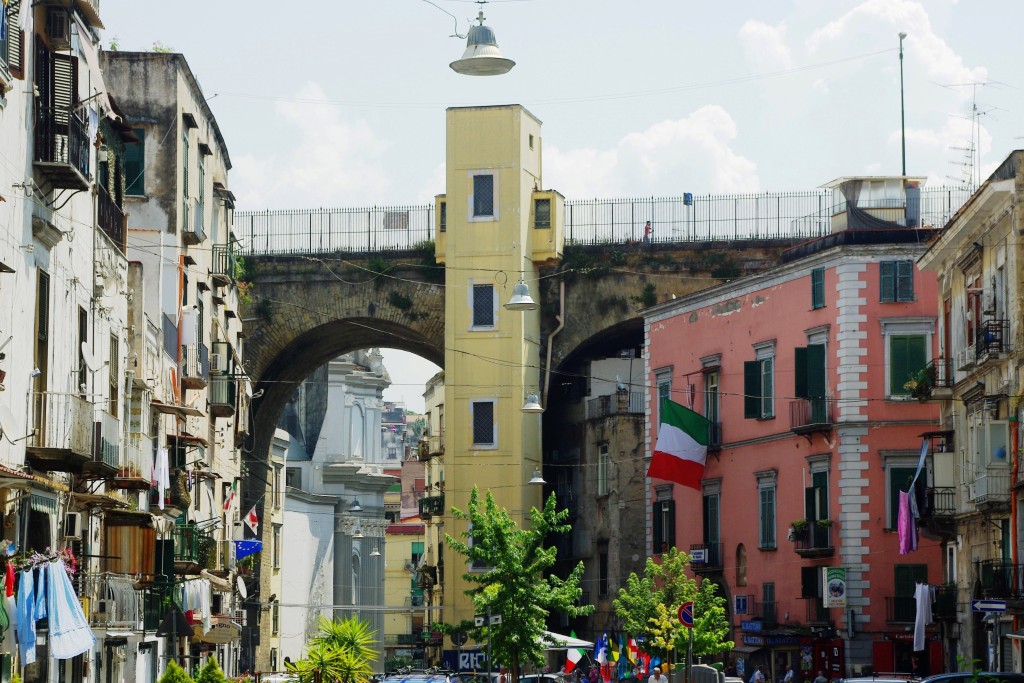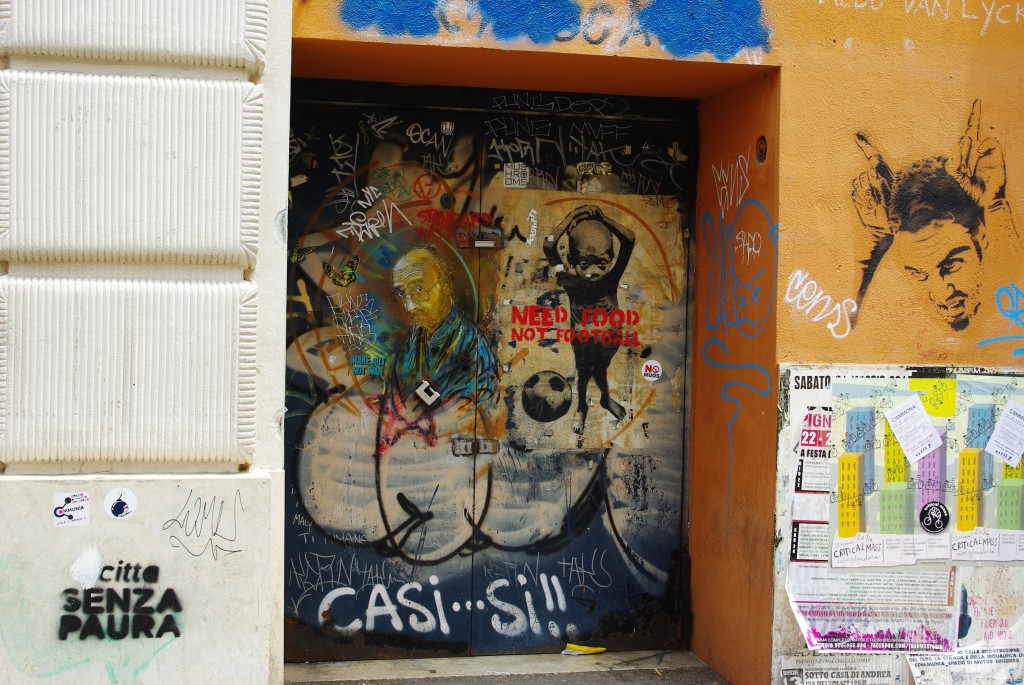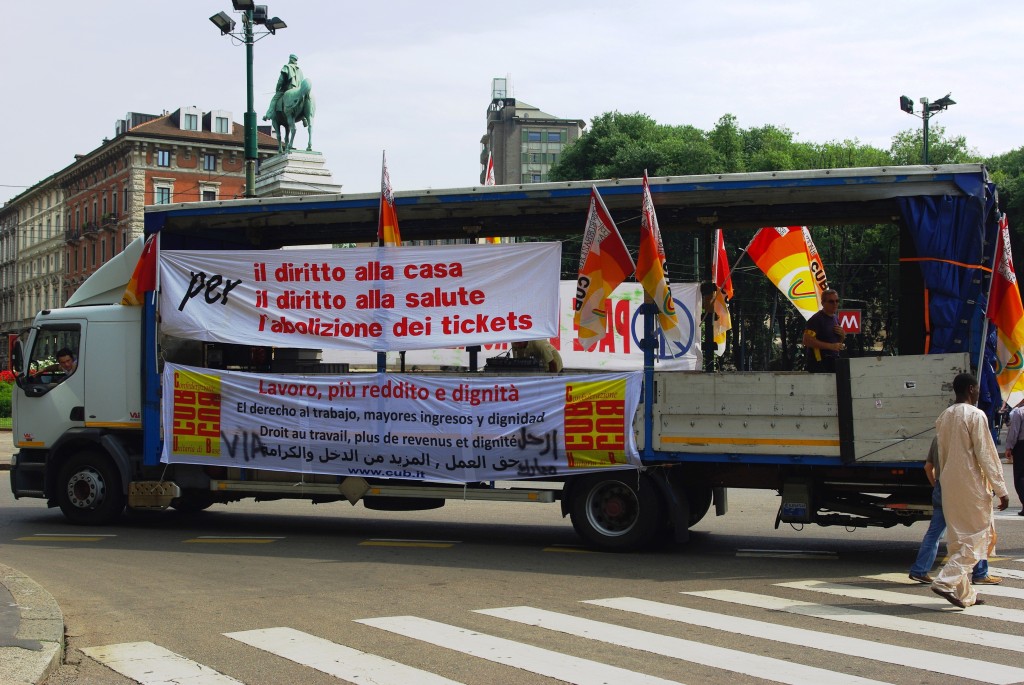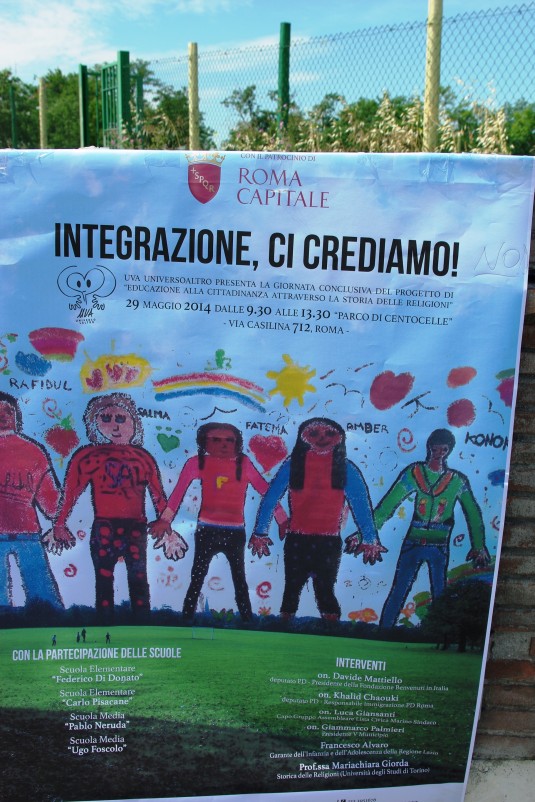
Pope Francis for President. It’s the latest provocation of Italian comedy sketches, but it generates bitter laughter. It speaks to the burgeoning lack of trust not only in traditional politicians, but also in political parties, mechanisms and institutions. It signals despair and disillusionment. There is reason to be concerned. Muhammad Shahzad Khan, a Pakistani resident, was recently killed in the Torpignattara Roman neighborhood by a 17-year-old. The kid was incited by his father as Mr. Khan, evidently drunk, was singing in the street late one September evening. In November, clashes between residents and newly arrived refugees, especially but not exclusively in the Tor Sapienza sub-municipality of Rome, brought the thick folder of “the peripheries’ rage” back on the desktop of governing politicians.
From Italian peripheries to French banlieus and British boroughs it is more than buildings and institutions that are being restructured and torn down. It is the fabric of everyday life as socio-political life that is being undercut and reassembled into the variegated blanket of global parochialism. The invisible hand of restructuring is muscular; it inflicts pain where it is already sore. As anthropologists, and as citizens, let’s do whatever is in our power to change course, before one more teenager is stopped and searched—as his body language and phenotype do not belong in the city center, on campus, or in the clothing store; before one more neighborhood is reduced to ashes; before one more suicide “by economic crisis;” before one more unarmed youth is brutalized by those protecting and serving him; before one more migrant is killed with kicks and punches. We can’t afford apathy, resignation, indifference: we are already late. The time will never come, unless we inhabit it right now and ask the right questions. Younger generations are “surviving” as “NEETs” not in employment, education or training. Citizens of all ages—with and without the rights and responsibilities of formal citizenship—feel their existence is being “mutilated.” This is what they have shared with me, in some of the less glittery Italian neighborhoods.

Using the format of an open letter to decision makers and grounding my words in ethnographic research in diverse but disadvantaged neighborhoods of Rome, Naples and Milan, I address the entrenchment of structural injustice as it is perceived by old and new residents, and the larger mechanisms of social mistrust, political disaffection and global parochialism emerging in European urban peripheries, boroughs and banlieus:
Recession, unemployment and precarious employment are hitting us hard. Urban spaces are volatile with jealousy and resentment. We feel confined, abandoned by institutions, worthless, fearful of the dark. Austerity is carving its way into our public lighting, our public transportation, the cleanliness of our sidewalks, the beauty of our parks, the quality of our education, and even the vigilance of our police forces. It’s not only that we are called “the periphery.” It’s that we are made and remade as the periphery, daily. We feel it, with our bodies: when the bus won’t stop as it’s already too full. When infrastructure crumbles over our head. When a handful of developers and landlords are allowed to exploit our need for a roof. When we have to illegally occupy thousands of apartments left empty. But we need more than a roof. Residential complexes and refugee facilities are not spaces to be filled with interchangeable individuals, but social venues where integration and quality of life need to be built and maintained. We are the periphery when municipal administrations, responsible for social services and for refugees’ reception, act reluctantly and without funds. When police agents become the shield and baton of inadequate policies. Our tenacious resistance is fragmented. Alliances are resilient but evanescent. We are pushed to our own existential periphery. We are not racist, but…they have that new smartphone, and we are stuck with a flip phone. They are given food and shelter, and we live on canned tuna. Who are “they”? It doesn’t matter, for they are interchangeable: Romanian migrants, Eritrean refugees… and the Moroccan taking my seat, who stands for all immigrants.
This is the triumph of the classic synecdoche of racism, of course, diffracted in a myriad of conformist variations. It is the narcissism of small things—the smartphone, the park bench, the seat on the bus—but it is also the overarching ideology of communities as static and normatively singular. This ideology makes the dichotomy of us and them plausible in the first place. And it resonates with the many shades of ethno-religious and racial profiling to which two generations are being systematically, excruciatingly and unapologetically exposed.

We have to entrust ourselves to good luck then. To usurers and criminals, if luck doesn’t work. We look disgruntled, we are disheartened. Our life is shaped in capitals, in Brussels, in financial powerhouses beyond reach. The proliferation of press releases and of lawmakers’ smart tweets is not going to change that perception. The contrary is true. Leaders seek to reach us directly. They spin their words to speak to our discontent, to our emotions and aspirations. But we stopped listening the moment we realized they didn’t mean it. The direct communication of these novel charismatic leaders seeks to bypass intermediate social institutions—from unions to NGOs and religious groups. For long, these served as convenient shock absorbers and service providers. Now that they utter inconvenient truths, governing leaders seek to bypass them as outmoded.
Rebellion is our only way to get noticed. Our rage needs only a spark to deflagrate. Many of us are voting with our rumbling stomachs, for populists who craftily cultivate our gut feelings and scale up our concerns with civility. They promise moralizing simplicity instead of complexity; self-sufficient singularity instead of interdependent plurality; commonsensical change without real knowledge. Many of us do not even bother voting. The electoral ceremony doesn’t change anything. And the contrast among political parties has been weakened anyway, consolidated around neoliberal tenets.
Some of us did vote. We entrusted you, our representatives, with our dignity, with the administration of public goods, with the prospects of our loved ones. You speak on our behalf, allocate our money. Whenever you sign a law, our hand is the shadow of your hand. We do not expect miracles: self-anointed saviors already appeared in our lives. What we do ask is that you lead by example, rather than being led by the popular prejudice you take for granted. We demand that you speak with pragmatism and act with honesty. That you consider the compelling evidence of disasters, including youth riots, preannounced by entrenched forms of injustice and inequality. You already know this.

Why the preservation of structural injustice, then? Why ignore the thousands of pages on our urban condition? Is it that you don’t like what anthropologists found out? Or that sociologists don’t write directly enough? We are not indicting you with inaction and indifference. For you are acting. You have been translating Thatcher’s famous statement, “there is no such thing as society,” into the vernacular experience of millions of Europeans. You have inscribed it onto our bodies. You have deployed it as a bulldozer to level the common goods and public venues around which we gather as participants, rather than consumers. Please explain, with statistics we may understand: why the structural “reforms” of education, health care and the job market? For whose benefit do you undercut the foundations of social trust, of solidarity and of belonging to an open, just and plural polity? The “new” precariousness of urban living and employment is now not only entrenched, but also unequally distributed. Intergenerational and interclass social conflicts are blatantly racialized and spatialized into center and periphery, north and south.
The xenophobia of a vocal minority is then an outcome and a product, not a starting point. Most of us are uncomfortable with it, and we demonstrate this quietly, with daily practices and relationships. We share a visceral attachment to our place, as stewards for public spaces and common resources. We vigorously reject the neo-Fascist entrepreneurs of fear who land in our neighborhoods to ignite malcontent and collect votes. We are not falling for a war of the newly impoverished against the structurally poor. On the contrary, we appreciate that in the tomato fields of the Italian south and in the warehouses of the northeast migrants and refugees have gone on strike against organized crime also on our behalf–citizens who for too long have kept quiet.
We do have demands for you, as our representatives. Could you stop treating our unemployed youth like spoiled children? Could you stop telling us what to do, so you may listen and enable our participation in what shapes our life? Could you stop appropriating the words we value—respect, justice, rights—if you intend to use them only for front-page announcements? You know that taxation without representation is an explosive cocktail. Please make our vote count: accept social conflict exists, make some choices and disagree more with each other. Be partisan on our behalf.
Allow us to get involved. We may not like politics as usual, but we do aspire to conscientious politics; and we are eager to embrace forms of belonging and participation. Can you make our hearts pound with words and provisions of justice, solidarity and respect? Are you willing to work day and night to assess whether the gap between what is right and what is feasible is as wide as skeptics think? Are you willing to act in the interest of the most vulnerable; to represent precisely those who can’t buy their influence in legislative chambers?
***
We are relational beings. We cry, the very moment we come in to this world: that’s a loud, healthy request to be embraced. Only a hug—another person–can soothe us. We are not self-sufficient. We crave community and belonging. Let’s share with our neighbor whatever we’ve got–or fortify our life behind bars. Let’s rework our ethical, socio-economic, scholarly and political priorities—or find comfort in always fashionable scapegoating and in a quiet life. Let’s consider the voices of the 35 refugees who wrote an open letter to fellow Romans expressing their desire “to build a new life together, to imagine together how to solve the city’s problems.” Any European dream, if we are to probe again such rhetorical construct, is a daily practice: working and walking together as equals, in a pluralistic environment of socio-economic and legal justice, personal safety and associative freedom. Any European dream starts with boroughs and banlieus, at the periphery of power. Or it dies there—as it keeps hitting, purposefully or by negligence, the raw nerves of those exposed to structural injustice and inequality.
Maurizio Albahari is assistant professor of anthropology at the University of Notre Dame. He is the author of Crimes of Peace: Mediterranean Migrations and the World’s Deadliest Border (in press, University of Pennsylvania Press). Pursuing the intersections of scholarship and public citizenship, Albahari has contributed to news media including CNN, BBC, The New York Times and The Wall Street Journal. His current research traces participatory and trans-Mediterranean citizenship, integration and interreligious dialogue emerging in the everyday life, aesthetics and politics of changing Italian cities. Travel to Italy during summer 2013 and 2014 was made possible by grants from the Institute for Scholarship in the Liberal Arts at Notre Dame. Albahari received his Ph.D. in anthropology from the University of California at Irvine.


